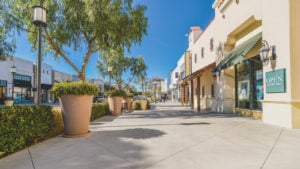In this way, REITs can be an excellent way to generate passive streams of income.
In this article, we’ll look at three high-yield REITs that have high dividend yields and strong fundamentals.
NNN REIT (NNN)

NNN (NYSE:NNN) is a REIT that owns roughly 3,000 single-tenant, net-leased retail properties across the United States. Its 15-year low occupancy rate is 96% and it typically ranges between 98%-99%.
On Feb. 8, 2024, NNN REIT reported its Q4 results. NNN generated core funds from operations (FFO) of 53 cents per share, consistent with the same period in the previous year. NNN REIT acquired properties at an initial cash cap rate of 7.6%. The REIT maintained a high occupancy rate of 99.5%, signaling a healthy tenant base and robust demand for its properties.
The REIT has grown its FFO per share at a mid-single-digit rate each year since 2011. The trust’s high level of occupancy should afford it low-single-digit levels of revenue growth, while slightly increasing margins should continue to see it growing FFO per share at a mid-single-digit rate. The bulk of its FFO-per-share growth will come from net new property acquisitions, with a small boost from rising rents.
NNN REIT has increased its dividend for 34 consecutive years. The stock currently yields 5.3%.
Mid-America Apartment Communities (MAA)

Mid-America Apartment Communities (NYSE:MAA) owns apartment communities in the Southeast, Southwest and mid-Atlantic regions of the U.S. It currently has an ownership interest in 102,662 apartment units across 16 states and the District of Columbia.
In early February, MAA reported financial results for the fourth quarter of fiscal 2023. Same-store net operating income grew 2.1% over the prior year’s quarter, primarily thanks to growth in average rent per unit in new leases.
Core funds from operations (FFO) per share remained flat at $2.32 due to higher interest expense but exceeded analysts’ consensus by 1 cent.
MAA has raised its dividend for 13 consecutive years and has a healthy payout ratio of 65%. It also has one of the strongest balance sheets in the REIT universe, with net debt of $5 billion, which is only five times the annual FFO. As a result, the 4.5% dividend yield of MAA should be considered safe.
Omega Healthcare Investors (OHI)

Omega Healthcare Investors (NYSE:OHI) is a healthcare REIT that generates over 80% of its revenues from skilled nursing facilities, and the remainder of its revenues from senior housing developments. The trust generates about $825 million of annual revenue.
Omega posted fourth quarter and full-year earnings on Feb. 7, 2024, and results were better than expected on both the top and bottom lines. Funds from operations in the fourth quarter came to 68 cents, which was a penny ahead of expectations. Earnings were down from 71 cents in Q3, and down from 73 cents in the year-ago period. Revenue soared 65% higher year over year to $239 million and beat estimates by $33 million.
Future growth will be fueled in large part by Omega’s investments. Omega completed $249 million in new investments in Q4, consisting of $167 million in real estate loans, $51 million in real estate acquisitions, and $31 million in capital renovation and construction projects. Overall, the trust issued guidance of $2.70 to $2.80 in FFO per share for 2024.
The healthcare sector is much less cyclical during recessions than other sectors of the economy. During the Great Recession, Omega saw its FFO per share decrease by only 3%. It also had a strong dividend growth record prior to 2020. The payout ratio is quite high, but that is typical for a REIT, and the dividend appears secure, provided the company’s FFO continues to grow.
OHI shares currently yield 8.6%.
On the date of publication, Bob Ciura did not hold (either directly or indirectly) any positions in the securities mentioned in this article. The opinions expressed in this article are those of the writer, subject to the InvestorPlace.com Publishing Guidelines.
Bob Ciura has worked at Sure Dividend since 2016. He oversees all content for Sure Dividend and its partner sites. Prior to joining Sure Dividend, Bob was an independent equity analyst. His articles have been published on major financial websites such as The Motley Fool, Seeking Alpha, Business Insider and more. Bob received a bachelor’s degree in Finance from DePaul University and an MBA with a concentration in investments from the University of Notre Dame.
